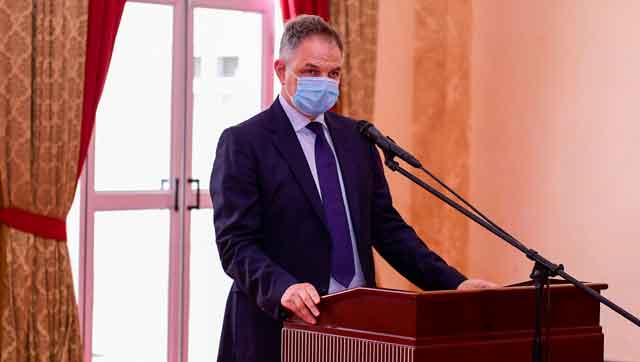
Kampala, Uganda | THE INDEPENDENT | Cabinet has finally approved a new National Population Policy 2020.
State Minister for Finance, David Bahati confirmed that the cabinet meeting on Monday approved the new policy which is aligned alongside Vision 2040 and Sustainable Development Goals.
Unlike the past policy developed at the time when the country was battling the high fertility rates, high maternal mortality rates and high incidence of HIV/AIDS, it is expected that the new policy steers the country towards harnessing the demographic dividend.
The Director General of the National Population Council, Dr Jotham Musinguzio says the new policy comes at the time when the country’s population structure is changing.
Uganda’s largest population in the past has been dominated by a young dependent population under aged below 15. Economists and population experts have in the past that kind of population structure has been the reason sectors like primary education and healthcare have taken large part of the budget.
According to Dr. Musinguzi had in the past decades registered a decline in both fertility and mortality rates. The country is also shifting from a largely dependent population to one that should more productive.
The challenge for Uganda according to Dr. Jotham Musinguzi to find ways of ensuring that the growth of a young adult population can find employment if the county is to reap from the demographic dividend.
The new policy recognizes that in addition to infrastructure like roads, energy and Information Communication Technologies, the government need to prioritize human capital development.
Cabinet’s approval of the policy coincides with the United National Fund for Population, (UNFPA) and the government of Uganda launch of UNFPA UGANDA 9th Country Programme (2021-2025)
UNFPA UGANDA 9th Country Programme (2021-2025) seeks to address high population Growth rate – 3%, High Total Fertility rate – 5.4 and early marriages among others.
The country’s Population is according to UNFPA expected to reach 55m by 2030. About 75% of the country’s population is under thirty years.
UNFPA Representative in Uganda, Alain Sibenaler, the agency has mobilized USD 90 MILLION (335 billion shillings) to implement to five-year program, which is aimed at improving the lives and rights of Ugandans especially; adolescents, youth and women.
Sibenaler says no country can grow without tackling issues like population growth and fertility rate.
The UN Resident Coordinator in Uganda, Rosa Malango says they will use the Country Programme Document to ensure the vulnerable in Uganda have adequate access to adequate social protection services and inclusive and accountable governance services.
The policy also calls for more investment in the social welfare of the country so that as the populations grows older, they are able to positively and effectively contribute to economic development.
The government has for long been divided between supporting or discouraging high population growth rates if it is to realise the required sustained economic growth rates, which will lead to development and social transformation.
According to the 2019 revision of the World Population Prospects Uganda’s total population was 42,729,036 in 2018, up from 34,856,813 given by the National Housing and Population Census 2014.
The proportion of children below the age of 15 accounts for 48 percent, while those 65 years or older are just 2.5 percent, making Uganda the country with the third youngest population after Niger and Mali.
********
URN
The post Cabinet approves new national population policy appeared first on The Independent Uganda:.
from The Independent Uganda: https://ift.tt/3mrXDoj
0 Comments